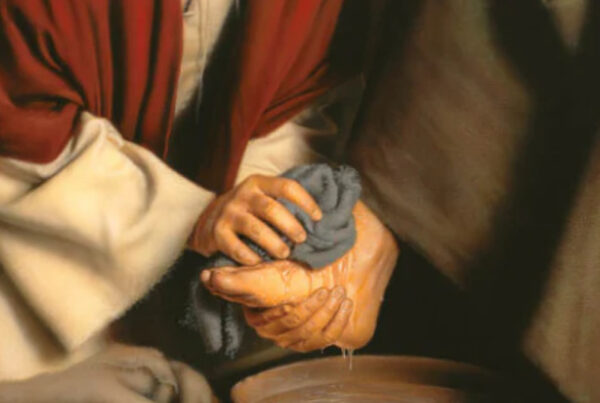The Book of Hebrews
Chapter 8
Now the main point of what we are saying is this: We do have such a high priest, who sat down at the right hand of the throne of the Majesty in heaven, and who serves in the sanctuary, the true tabernacle set up by the Lord, not by a mere human being.
Every high priest is appointed to offer both gifts and sacrifices, and so it was necessary for this one also to have something to offer. If he were on earth, he would not be a priest, for there are already priests who offer the gifts prescribed by the law. They serve at a sanctuary that is a copy and shadow of what is in heaven. This is why Moses was warned when he was about to build the tabernacle: “See to it that you make everything according to the pattern shown you on the mountain.” But in fact the ministry Jesus has received is as superior to theirs as the covenant of which he is mediator is superior to the old one, since the new covenant is established on better promises.
For if there had been nothing wrong with that first covenant, no place would have been sought for another. But God found fault with the people and said:
“The days are coming, declares the Lord,
when I will make a new covenant
with the people of Israel
and with the people of Judah.
It will not be like the covenant
I made with their ancestors
when I took them by the hand
to lead them out of Egypt,
because they did not remain faithful to my covenant,
and I turned away from them,
declares the Lord.
This is the covenant I will establish with the people of Israel
after that time, declares the Lord.
I will put my laws in their minds
and write them on their hearts.
I will be their God,
and they will be my people.
No longer will they teach their neighbor,
or say to one another, ‘Know the Lord,’
because they will all know me,
from the least of them to the greatest.
For I will forgive their wickedness
and will remember their sins no more.”
By calling this covenant “new,” he has made the first one obsolete; and what is obsolete and outdated will soon disappear.
Devotional:
Having demonstrated Jesus’ position as High Priest, in God’s real heavenly temple-not just a replica on earth, its time to explain to the Hebrews how the new covenant would replace the old. The old covenant’s insufficiency and malfunction was not due to anything inherently wrong with the Law. The point is that a Law which depended on the works of man was proven to be powerless and useless to redeem mankind and draw us back to God. Mankind had proven itself untrustworthy and incapable of consistently doing what God had asked. And since by definition, a covenant comprises two parts: an action and a re-action, man’s inability to keep his part of the covenant made God’s part impossible to keep. But if the Law did not work then, what law would work now? How were they going to please God and remain sinless?
To explain, the writer recalls Jeremiah’s prophecy in Jeremiah 31. Here, God explains how although He lead Israel by the hand out of Egypt with the intent of caring for them by keeping His part of the covenant, He could not because they kept breaking the covenant. Now He promises a new covenant in which He puts those same laws “into their minds and write them on their hearts.”
This time He says there will be no need to say to others: “know the Lord” because everyone will know Him. This time He will be able to keep His part of the covenant and take care of them. This time He will remember their sin no more.
With a new covenant being prophesied in Jeremiah’s time, adhering to the old one is already on its way to extinction. At the time of Christ’s death, burial and resurrection, it becomes fully extinct and yet almost 70 years later, the Hebrews are still adhering to the old covenant. The writer is saying that although you have already received Christ; by mixing the Law with the gospel, you are returning to a system, which is no longer valid or effective!
But how is God going to put his law in their minds and write them on their hearts so as to have an effective covenant? Stay tuned…
Questions to ponder:
- Do you think that God should have kept his part of the covenant even though man was constantly breaking it?
- Do you find yourself still trying to earn God’s grace even after accepting Christ’s finished work for you?



